Philosophy, with its profound questions about life, the universe and everything else, has been a rich source for television dramaturgy. Many series have explored complex philosophical themes in creative and engaging ways. Here are seven of the best series that not only entertain but also offer food for thought.
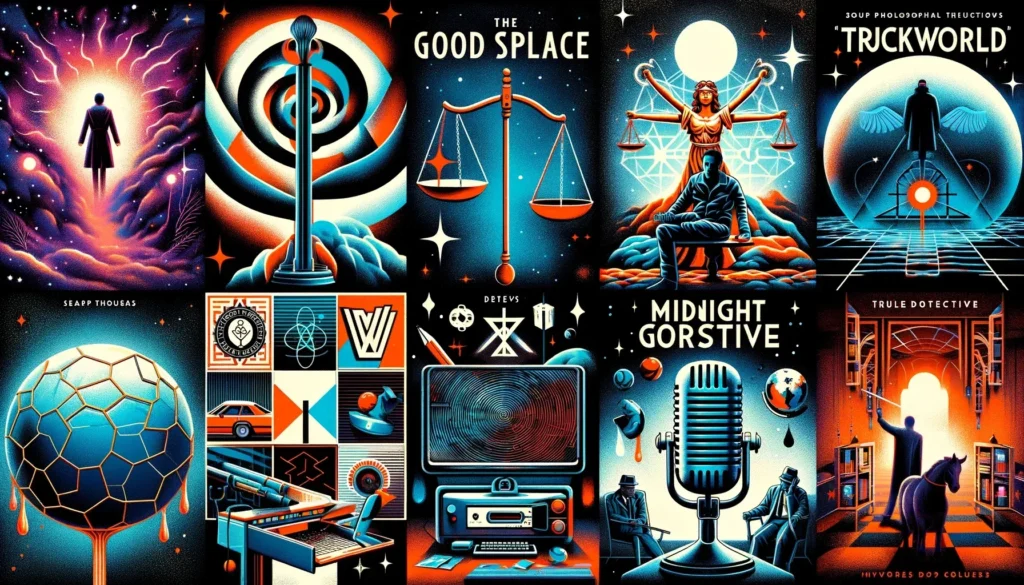
1. “The Good Place”
Plot and Philosophy: “The Good Place,” created by Michael Schur, is a comedy that explores what it means to be a good person. The series delves into ethical concepts, with characters debating moral theories from philosophers such as Aristotle and Kant.
Cast and Production: Starring Kristen Bell and Ted Danson, the series was acclaimed for its smart and humorous approach to serious topics.
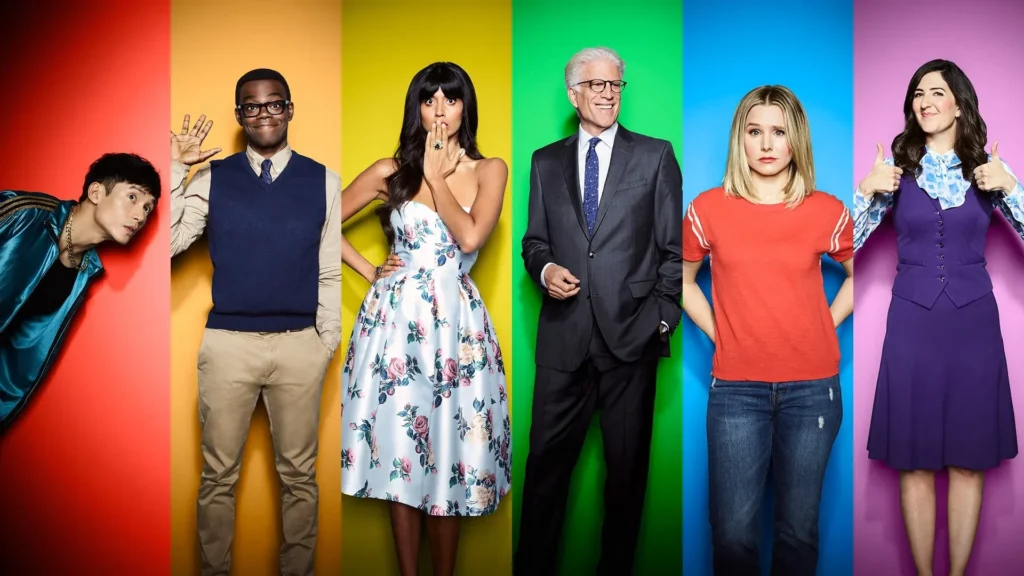
Synopsis
The series centers on Eleanor (Kristen Bell), an Arizona woman who discovers, through an intricate series of supernatural events that lead her to visit the afterlife, that she isn't exactly a good person. She decides to turn over a new leaf and discover what it really means to be a good or bad person, and thus reward people for their old behavior.
2. “Westworld”
Plot and Philosophy: “Westworld,” based on the 1973 film by Michael Crichton, delves into questions of consciousness, free will and the nature of reality. It's a dense series that questions what it means to be human.
Cast and Production: With a stellar cast including Anthony Hopkins and Evan Rachel Wood, “Westworld” challenges its viewers with complex narratives and philosophical symbolism.
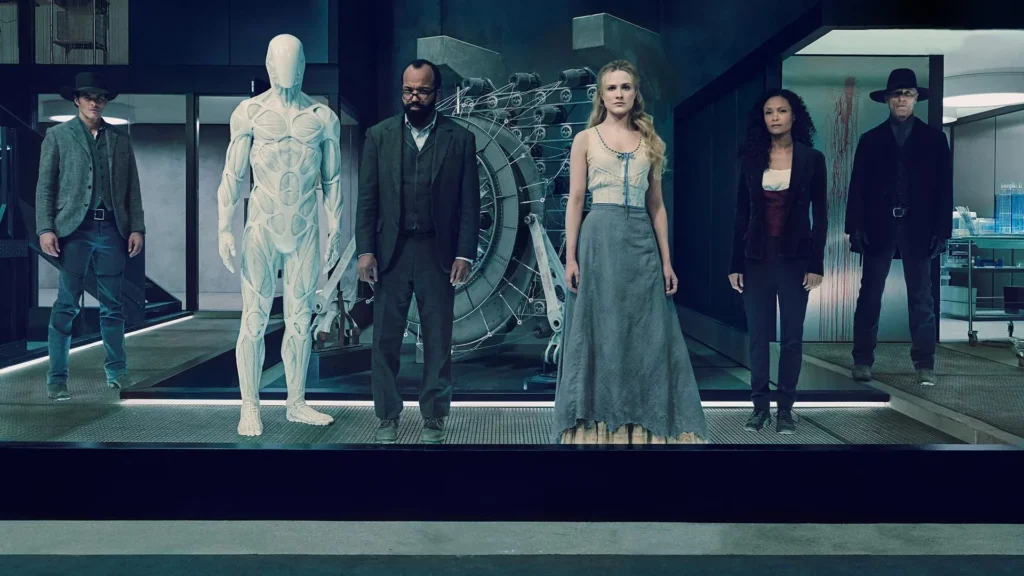
Synopsis
In a theme park, visitors immerse themselves in a universe where any wish can be fulfilled by carefully programmed robots. But some of these machines deviate from the programming standard with abnormal behaviors.
3. “Black Mirror”
Plot and Philosophy: “Black Mirror,” created by Charlie Brooker, is an anthology series that examines the dark consequences of technology on society. Each episode is a self-contained story that explores dystopian and ethical themes.
Cast and Production: It varies with each episode, often attracting big names like Jon Hamm and Miley Cyrus.
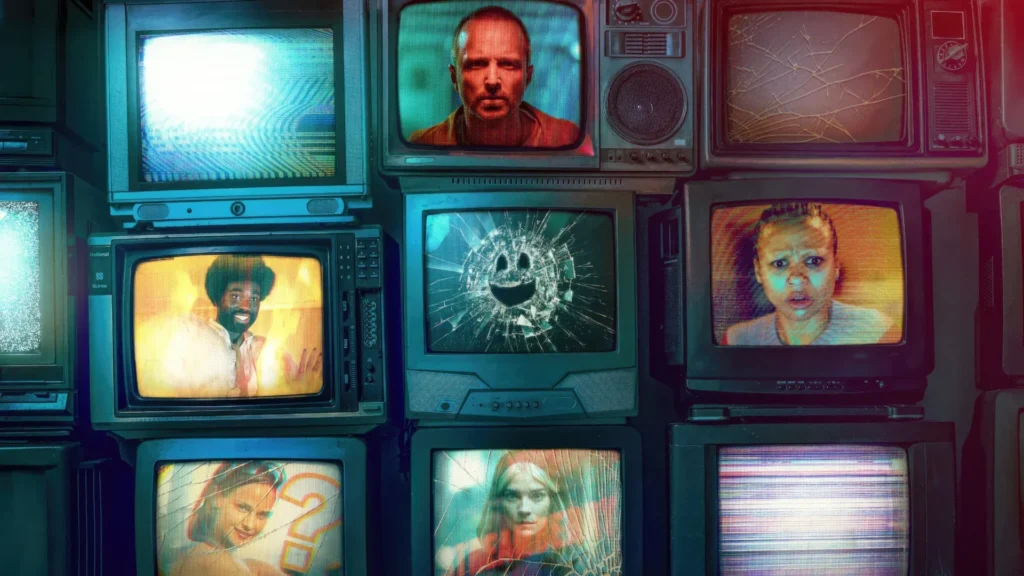
Synopsis
This science fiction anthology series explores a near future where human nature and cutting-edge technology enter into a dangerous conflict.
4. “True Detective”
Plot and Philosophy: “True Detective”, especially in its first season, is a crime series with a strong philosophical streak, delving into nihilism, existential pessimism and the nature of evil.
Cast and Production: Matthew McConaughey and Woody Harrelson star, bringing to life complex characters whose dialogue often resonates with philosophical ponderings.

Synopsis
Louisiana detectives experience a cycle of violence and obsession in their 17-year search for a killer.
5. “Devs”
Plot and Philosophy: “Devs” is a miniseries that explores themes of determinism and free will, focusing on a technology company that develops a mysterious machine with profound philosophical and ethical implications.
Cast and Production: Created by Alex Garland and starring Sonoya Mizuno and Nick Offerman, the series is a science fiction thriller that challenges perceptions of time and reality.

Synopsis
Young software engineer Lily Chan investigates the secretive development division of her employer, a cutting-edge technology company based in Silicon Valley, which she believes is behind her boyfriend's murder.
6. “Fargo”
Plot and Philosophy: Based on the film by the Coen brothers, “Fargo” is an anthology series that explores the absurdity of human existence and the randomness of morality in stories that mix crime and dark humor.
Cast and Production: With a rotating cast that includes the likes of Billy Bob Thornton and Martin Freeman, each season offers a new take on the philosophy of morality.

Synopsis
Billy Bob Thornton will play Lorne Malvo, a rootless and manipulative man who meets and forever changes the life of a small-town insurance salesman, Lester Nygaard, played by Martin Freeman. Colin Hanks will play police officer Gus Grimly, a single father who must choose between his personal safety and his duty as a law enforcement officer when he comes face to face with a killer. Allison Tolman will play Molly Solverson, an ambitious police officer.
7. “After Life”
Plot and Philosophy: “After Life”, created and starring Ricky Gervais, is a series that deals with grief and the search for meaning after a devastating loss, exploring existential questions with a mix of humor and sadness.
Cast and Production: Gervais is joined by a supporting cast who bring to life a small town full of unique characters dealing with their own moral and existential dilemmas.

Synopsis
Devastated by his wife's death, a journalist becomes cold and distant, in an attempt to alienate everyone who wants to help him.
Each of these series offers a unique window into different aspects of the human experience, filtered through a philosophical lens. They challenge us to think more deeply about the world around us and our place in it. By watching these series, viewers can find entertainment but also an opportunity for reflection and possibly personal growth
FAQ: Exploring Philosophy Through TV Series
TV series have the power to not only entertain, but also to instigate critical thinking and philosophical debate. The following questions seek to expand the understanding of the themes covered in the series mentioned in the article, providing a more in-depth view of how philosophy permeates television entertainment.
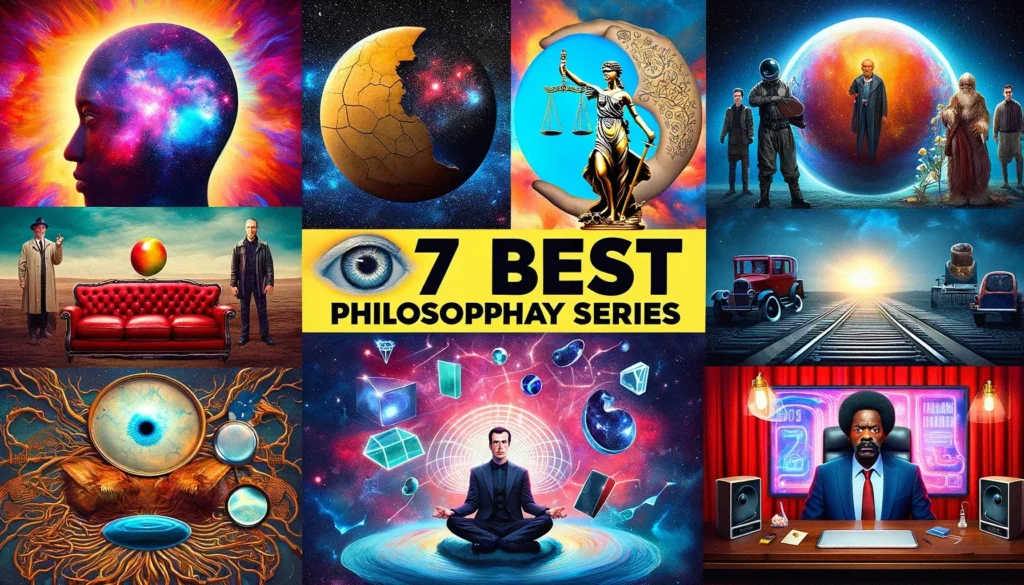
"The Good Place"
1. How does “The Good Place” incorporate ethical concepts into the narrative?
“The Good Place” weaves ethics into the narrative by placing characters in situations that force them to reflect on their actions and motivations. The series frequently refers to real ethical theories and places characters in moral dilemmas that have no easy solutions, encouraging the audience to think about what they would do in those circumstances.

2. Does the series present any specific philosophy as superior?
While “The Good Place” explores various schools of ethical thought, the series itself does not endorse a specific philosophy as superior. Instead, she emphasizes the importance of trying to be a better person and the complexity inherent in judging the morality of actions.
"Westworld"
1. What are the main philosophical questions addressed in “Westworld”?
“Westworld” questions the nature of consciousness, the existence of free will and what it means to be human. The series challenges viewers to consider whether robot hosts can be considered conscious and deserving of rights and freedom.

2. Does “Westworld” suggest that free will is an illusion?
The series suggests that free will may be more complicated than traditionally thought. In “Westworld,” the hosts’ actions are initially controlled by programmed narratives, but as the series progresses, some begin to act in ways that suggest a form of autonomy.
Black Mirror
1. How does “Black Mirror” use technology to explore ethical issues?
“Black Mirror” uses technology as a lens to explore how innovations can amplify the best and worst human tendencies. The series examines the unintended consequences of technology on privacy, identity and morality.
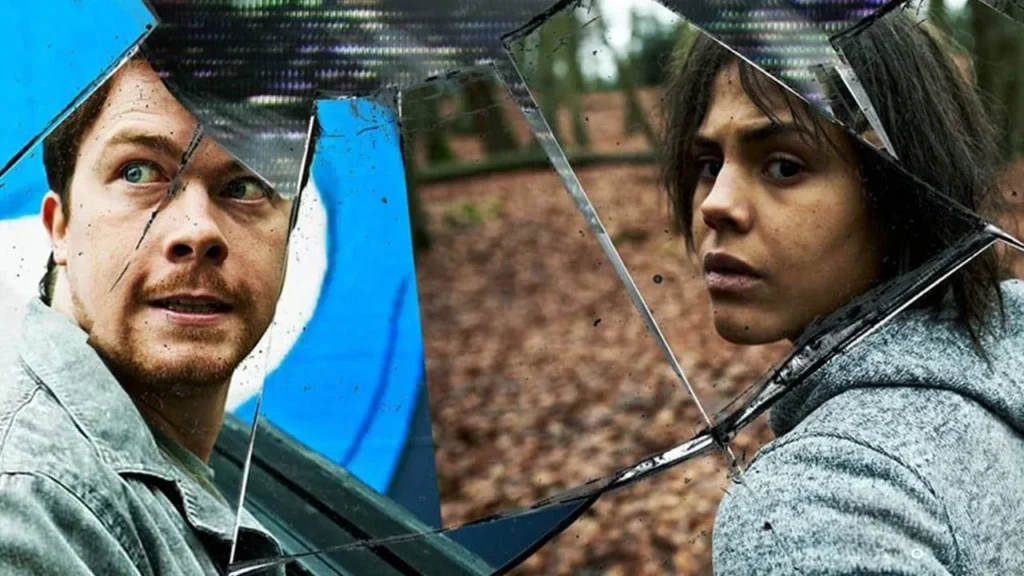
2. Is there an episode of “Black Mirror” that you would specifically recommend for its philosophical themes?
The episode “White Bear” is often recommended for its disturbing examination of punishment and justice. “San Junipero” is another notable episode that explores consciousness and the afterlife in an emotional and complex way.
"True Detective"
1. How does “True Detective” address nihilism and existential pessimism?
Through the character Rust Cohle, played by Matthew McConaughey, “True Detective” explores themes of nihilism, with dialogue that reflects a worldview that questions the meaning of life and the moral structure of the universe.

2. Does “True Detective” offer any resolution to your philosophical ponderings?
The series offers resolutions that are more personal than philosophical. Characters may find some sense of purpose or redemption, but the larger philosophical questions often remain open to the viewer's interpretation.
“Devs”
1. How does “Devs” explore the concept of determinism?
“Devs” focuses on a machine that can accurately predict the future, raising questions about whether free will exists and whether our actions can be predicted. The series suggests that, in a deterministic universe, every action is the result of a chain of pre-existing events.

2. Does the ending of “Devs” support the idea of a deterministic universe or suggest the existence of free will?
Without revealing too much,
The ending of “Devs” offers a complex look at these issues, allowing for multiple interpretations. Some characters' actions seem to support the notion of free will, while other aspects of the narrative reinforce determinism.
"After Life"
1. How does “After Life” deal with the concept of meaning in life after a significant loss?
The series follows the main character as he struggles to find meaning in life after his wife's death. “After Life” addresses the philosophy of the absurd, where the protagonist seeks purpose in a world he sees as chaotic and meaningless after his loss.
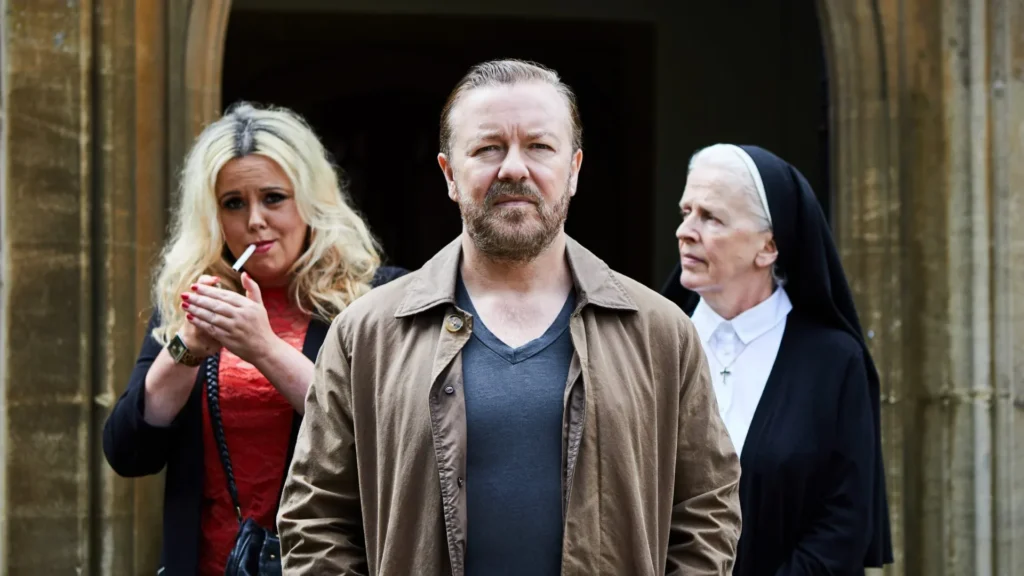
2. Does “After Life” offer any philosophical solutions for dealing with grief?
The series suggests that meaning can be found in human connections and life's small pleasures, even after a devastating loss. She doesn't offer easy answers, but she encourages reflection on how to continue living meaningfully.
“Midnight Gospel”
1. How does “Midnight Gospel” use the podcast format to discuss philosophical themes?
“Midnight Gospel” combines animation with podcast interviews to create a space for dialogue on philosophical, spiritual and existential themes. Episodes are structured around in-depth conversations that explore topics ranging from drugs to death.
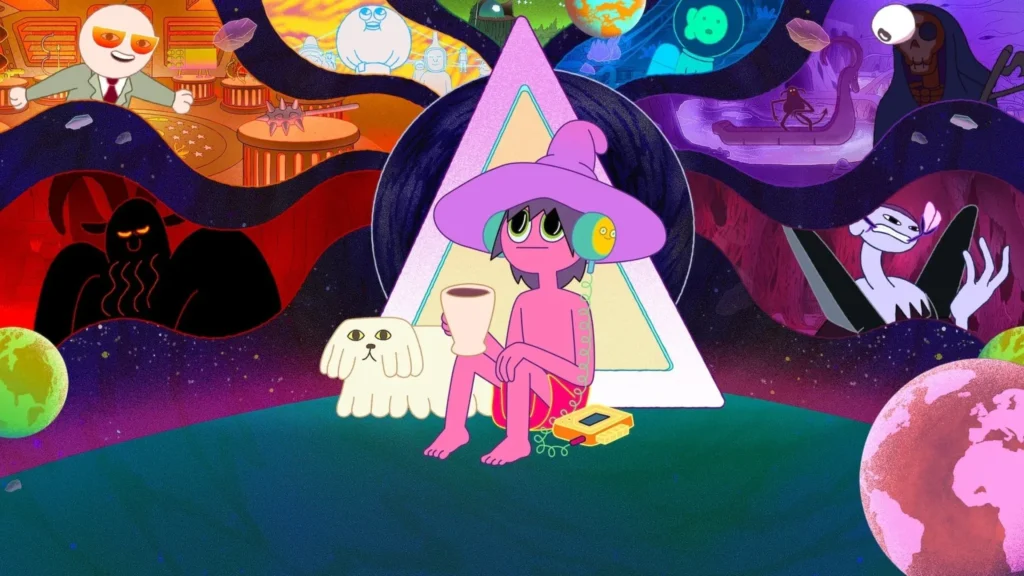
2. Does the series offer any definitive insights into the topics it discusses?
“Midnight Gospel” is more exploratory than conclusive. She invites viewers to reflect on the ideas presented, but rarely provides direct or dogmatic answers, remaining open to interpretation.
These questions and answers offer a glimpse into the wealth of philosophical themes explored in contemporary TV series, demonstrating the medium's ability to provoke deep and meaningful reflections on the human condition.
.






